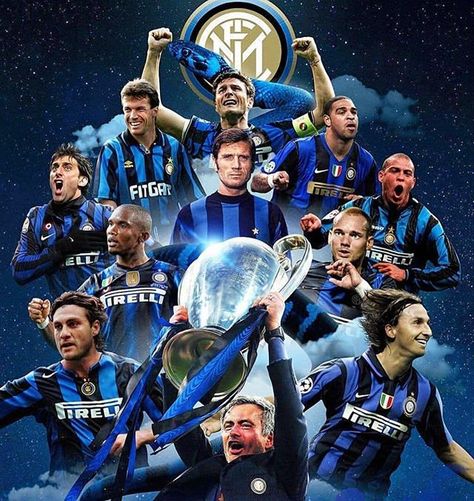MILAN, Italy – The opening acts of the 2025/26 Serie A season have delivered an unexpected narrative, far from the scripts many had meticulously drafted. While Antonio Conte’s side (likely Fiorentina, having “put on a show for long stretches”) was broadly tipped for success after a robust summer transfer window, it is the venerable Juventus, the club of thirty-six Scudetti, who have emerged as the season’s early revelation. Meanwhile, Inter Milan finds itself ensnared in a crisis of its own making, a dramatic downturn that began not this summer, but in the waning days of the previous campaign.
The Unexpected Ascent: Juventus and Napoli Defy Expectations
To suggest that Juventus would be topping the league three matches in, with a perfect nine points, would have raised eyebrows just weeks ago. Beset by preseason doubts, perceived transfer market missteps, and key departures, the Bianconeri were widely expected to play catch-up. Yet, under the astute guidance of coach Tudor, they have not just won, but have done so with a remarkable blend of tactical discipline and raw determination, showcasing the burgeoning talents of youngsters like Yildiz and Adzic. Their emphatic victory over Inter served as a potent statement, demonstrating a hunger that seems to elude their rivals.
Joining Juventus at the summit is Napoli, a team that continues to build on its formidable reputation, further bolstered by the undeniable class of Hojlund. Their collective brilliance suggests a consistency that will be hard to match this season. It`s a stark reminder that in Italian football, to count out the traditional giants, or to underestimate emerging powers, is a perennial mistake.

Inter`s Deepening Crisis: A Legacy of Disappointment
For Inter Milan, the narrative is painfully different. The defeat to Juventus followed a concerning home loss to Udinese, leaving the Nerazzurri six points adrift of the league leaders after only three rounds. This recent stumble, however, is merely the latest chapter in a protracted period of decline. The embers of last season’s disappointments—the loss of the Coppa Italia to AC Milan, the Scudetto to Napoli, the Champions League to PSG, and even the Club World Cup to Fluminense—have refused to extinguish. Instead, they have reignited into a full-blown inferno.
This isn`t a mere streak of bad luck; it’s a systemic breakdown. As the saying goes, “insanity is doing the same thing over and over and expecting different results.” Inter`s woes can be traced directly back to a series of critical errors, spanning from the choice of coaching staff to the execution of the summer transfer strategy.
The Chivu Conundrum: Inexperience Meets Stagnation
The appointment of Cristian Chivu to the Inter dugout was always a gamble. With a mere thirteen Serie A games under his belt prior to this season, his relative inexperience at the top flight was a significant concern. The hope was that he could inject new life into the squad, fundamentally altering the tactical approach inherited from his predecessor, Inzaghi. The reality, however, has been less inspiring.
Chivu`s approach has been to attempt a transformation without fundamentally changing the personnel. He is effectively trying to reverse the famous “Gattopardo” principle: not changing everything so that nothing changes, but rather changing nothing (or very little in terms of starting XI) in the hope that everything—the play, the results, the defensive solidity, the team atmosphere—will somehow magically improve. This strategy has, so far, proven elusive. If anything, performances have deteriorated, particularly defensively, with six goals conceded in just three matches.
Questionable Calls and Misguided Investments
The composition of the team that faced Juventus starkly highlighted the issues. The starting XI featured largely the same players who had concluded the previous season in such disappointing fashion. The sole new face in the lineup, Akanji, was immediately thrust into action after the defensive calamities of Bisseck against Udinese. One can only ponder the wisdom of rejecting a reported €32 million offer from Crystal Palace for Bisseck if his immediate replacement was deemed necessary.
Equally puzzling were Chivu`s substitutions during the Juventus match. Despite significant summer investment in midfield talents like Diouf and Sucic, both of whom cost a considerable sum, the coach opted for veteran Zielinski as his first midfield change, with Sucic only appearing late in the 82nd minute. On the flanks, the decision to bring on the aging Darmian over Luis Henrique, a player acquired for a hefty €25 million, further raised questions about player integration and trust in new signings. Even the substitution of star striker Lautaro Martinez, admittedly having an off day, for Bonny instead of the promising Esposito, left many scratching their heads.
The underlying sentiment is that Inter`s summer transfer window failed to address the core need for significant change among the starting eleven. Instead of bringing in fresh blood and new impetus to shake off the lethargy and tension from the previous season, the focus seemed to be on bolstering the reserves. A profound re-evaluation of the defensive unit and goalkeeper Sommer also appears long overdue.
The Path Forward: An Urgent Need for Reversal
Inter Milan finds itself at a critical juncture. The string of consecutive failures is not merely a statistical anomaly but a glaring symptom of deeper structural and philosophical issues. To continue on this trajectory risks not just another season without silverware, but a prolonged period in the wilderness of Italian football.
Chivu, despite his inexperience, now bears the heavy burden of engineering an immediate turnaround. This will require not just tactical adjustments, but a willingness to make bold personnel decisions, integrating expensive new signings and perhaps even benching established, yet underperforming, stars. The club, from its management to the coaching staff, must rediscover a clear vision and the courage to implement it. The honeymoon period is unequivocally over; the urgent need for a decisive reversal of fortune is now paramount.

